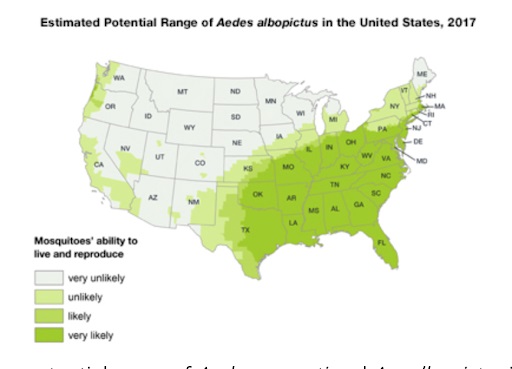Aedes albopictus, the Asian tiger mosquito, is an important nuisance mosquito species and known vector of arboviruses such as dengue, chikungunya, and Zika.
Despite their cosmopolitan distribution around the world, there is a paucity of accurate predictive models based on rates of development at different temperatures (degree-day models). These types of models can benefit mosquito control districts by predicting when to target early-season larval development, when populations are likely at their lowest levels. In this study, we determined the effect of temperature and nutrient levels on the development rates and male and female adult size of 2 Ae. albopictus populations: one field-collected, the other a 20-year-old lab colony.
Tick and Mosquito Control in East Meadow
We found relatively small differences in the effects of temperature and nutrient levels between populations. Data from these studies were used to create a predictive degree-day model, which when tested in New Jersey correlated with field observations of early-season field populations of Ae. albopictus.
While other important factors, such as day length and fluctuating temperatures, should be evaluated, data from this study will contribute to the development of operational strategies to effectively time early-season larviciding against this species.
Article Source: https://mosquitobrothers.com/development-of-a-degree-day-modelto-predict-egg-hatch-of-aedesalbopictus/

